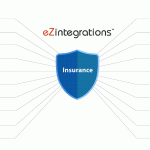Definition of Data Archiving
Although data is becoming the new gold standard, organizations are recognizing the importance of strategic data archiving. So let’s get into the definition of data storage and explore its benefits, as well as some of the best data archive practices.
Data archive is the practice of identifying obsolete data and removing it from production systems to long-term storage systems. Archive data is stored so that it can never be returned to service.
Data retention is important for businesses and organizations that constantly receive new information but must maintain existing data – and always be able to quickly retrieve both forms. Trends in government laws, legislation, and business policy all lean towards additional data, which are stored longer, and are quickly restored. Data storage services help companies keep abreast of these trends at low cost.
Benefits of Data Archiving
The benefits of data archiving include ensuring that production systems use fewer resources, are more efficient, and reduce overall storage costs.
Clearly, the benefits of data archiving are:
Reduced cost: Usually store data in low performance, high-volume media with low cost of repair and operation
Better backup and restore: Data archive remove data from backups, reduces their size and eliminates the need to restore unwanted files
Preventing data loss: Data archive reduces the ability to change data, prevents data loss
Improved security: Data archive removes documents from distribution, reduces the risk of cyber-attacks or malware infections
Compliance: Policies ensure records are kept timely and listing makes data more accessible
Data Backup or Data Archiving
The difference between a backup data and archive data involves how to scan, display features, and store data for use; how easy it is to access; how long it stored the data; and what is your goal for that data.
Data backups are the current data protection, allowing you to recover lost or damaged data from one location at a time. They store the data as it was in the original file, server, or website, which includes location information and is not displayed. To restore data, you need to know which backup copy you need and where the data is stored in that backup.
Data archives store currently unused data and allow you to retrieve data over a period based on search parameters. They store the data in a specified format, using metadata, regardless of how it might be stored during active use. To get data, you need to know the search parameters, such as source, author or file contents.
Why Data Archive?
Usually, organizations archive data to meet maintenance requirements, but this is not a sufficient reason. After all, you can just leave standing data in your production systems or let it collect dust in your old operating systems that new systems have replaced. So, what are the key reasons to archive your data?
Compliance with laws: Any organization that is accountable for auditing — and seeking to avoid costly penalties — should keep archives, especially those that live on dead systems.
Costing: If an organization becomes larger and they generate a larger amount of information, there can be significant savings from data archive. In addition, many organizations continue to pay maintenance and licensing of aging programs just to maintain access to the data they own.
Ease of IT: Reducing basic storage requirements and removing obsolete, unsupported asset systems helps clean up your IT infrastructure.
Bid Data: Moving data to an integrated archive releases information to those silos, adding an important element to your calculations.
Who Uses Data Archiving
Any organization that has a growing volume of information and needs to continuously manage storage and cost resources, or pursues comprehensive business statistics strategies, archiving data.
In addition, organizations often archive data with the following IT strategies or business initiatives:
Data Center / Migration Integration
IT transformation, such as hybrid cloud or IT-as-a-Service
Application Rationalization / Modernization
Business Implementation / Release
Integration & Discovery
Business Closure or Sale
Data Archiving with eZintegrations™
eZintegrations™ is a browser-based cloud data integration platform that does real-time data integration with minimum IT intervention for connecting software and any enterprise application.
eZintegrations™ safe and fast data archiving is extremely scalable, competent, and cuts complexity and costs.






